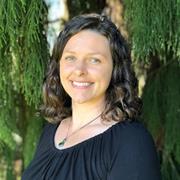Indigenous relationships in ecosystem restoration
How can Indigenous and colonizing peoples create meaningful and empowering partnerships with each other to restore native ecosystems within our cities?
This publication promotes diversity within ecological restoration initiatives, recognising all society members’ input as of value when it comes to creating nature-filled urban spaces. In particular, the paper encourages respect towards mātauranga Māori holders, these often undervalued voices that are sometimes included as token gesture but should actually be appreciated as powerful partner in ecological restoration groups.
Dr Kiri Wallace and her research group have published a significant journal article in the area of restoration ecology: Promoting social and environmental justice to support Indigenous partnerships in urban ecosystem restoration.
Native ecosystems in our cities are often restored by community groups without much social diversity in them and by using western scientific methods. This domination of western science does not allow for social considerations that are a key element in successful restoration in urban area, namely, inclusion of the local Indigenous Peoples and acknowledgement of the pre-colonisation history of the area. Aotearoa New Zealand cities are expanding in area and population (86% of us now live in cities) and we need a connection with nature and each other to support our mental, physical and long-term health.
Local Indigenous communities hold rich, holistic mātauranga about the area which reach back years before city establishment. Equitable partnerships in restoration initiatives are needed to re-create ecosystems in our cities using a social justice lens from the very beginning when projects are being planned. Non-indigenous peoples should educate themselves about historic and current social power dynamics and biases.
This research article highlights two examples of successful, socially diverse partnerships working to restore ecosystems in Aotearoa New Zealand cities. The image above (courtesy of Te Aroha Grace) shows a diverse group of people planting native plants in an urban context.
Read the full research publication Promoting social and environmental justice to support Indigenous partnerships in urban ecosystem restoration

Research Fellow
Thank you for any int…